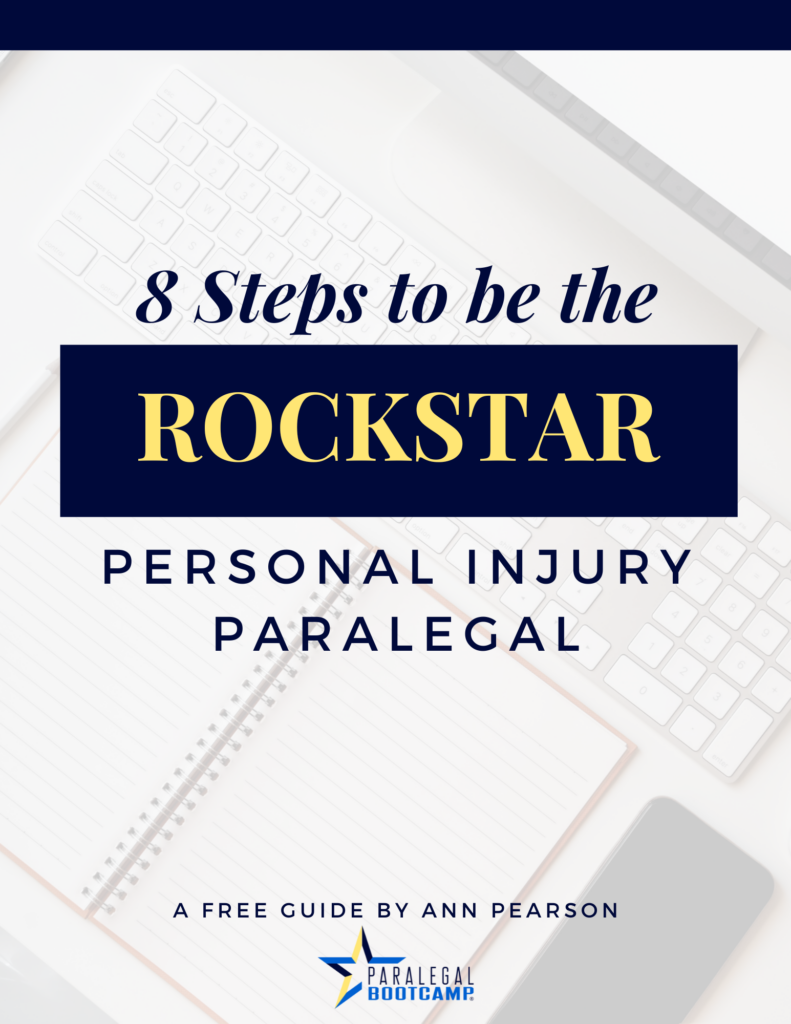Are you feeling like an underpaid paralegal? As paralegals, it’s our job to provide support to attorneys and clients, dedicating countless hours to research, investigation, drafting, and client engagement.
You serve as the point of contact when the attorney is not available. You also put in just as much dedication and effort into every case as the attorney.
How often have we heard someone say, “You’re the one leading this whole operation behind the attorney…”
Throughout your career as a paralegal, you may find yourself telling yourself the same thing, leading to intrusive thoughts, such as, “Well, I’m not the one making the big bucks…”
You then set course on this rampage of possibly considering law school, strike that out then hunt down companies that will pay you more money, however seem to come up short.
My First Paralegal Job
I began my career in a small boutique firm in Brooklyn, NY. As a fresh college grad, I was eager to score my first position out of college, my first full-time job. I wasn’t versed in the entry-level salary for paralegals.
I was considering law school and wanted to get a taste of what it was like to work in a law firm.
At that position, an attorney took me under her wing and taught me everything I knew about personal injury law and litigation in New York.
Get tips on asking for your boss to invest in you.

Free Strategy Guidebook for
New Litigation Paralegals
Are you ready to fast-track your litigation paralegal career?!
Our free guidebook reveals three powerful strategies that will set you up for success in your journey. If you’re ready to seize this opportunity and thrive as a litigation paralegal, sign up below, and get started now!
Choosing the Paralegal Career Path
I grew to love my role as a paralegal and opted out of going to law school to focus my career on paralegal work. Deciding not to be an attorney meant for me that I had to work to become the best paralegal.
At this point in my career, I was just eager to learn the field. After becoming a bit more seasoned in my role, I then wandered off to seek a new position, to further my learning into other fields of law.
It was then that I looked it up for the first time, “average salary for paralegals with x amount of experience”.
I was shocked by the number that came up. My current salary was nowhere near those numbers; not even average. I was earning about $20k less. I truly felt like an underpaid paralegal.
Read about a career path from receptionist to director.

Feeling Undervalued
I began to dwell on the thought, well if that’s what other people are paying, why has my employer not offered to pay me that?
Why do they feel I am less valuable? Is it that they don’t appreciate me, or are they taking advantage of my naivety? I set my mind on leaving the company based on all these things that “they” failed to do.
I was able to secure a job paying me the average salary for a paralegal. However, I wanted more. I knew that I was not average.
I held it against my employer when they wouldn’t automatically offer me more at my end-of-the-year review.
Although I was quickly able to increase my salary usually by $10K or even $20K more by changing jobs, I would then fall into the same trap of feeling like an underpaid paralegal.
I was tired of always being on the job hunt and wanted to find a company where I felt I could settle in.
Get insights from other paralegals on whether it’s worth it to be a litigation paralegal.
Personal Injury Paralegal Boot Camp
As a personal injury paralegal, you have an important role in the pre-litigation phase of your claim files.
But where do you even start when you’re managing 80+ active files?
This online course will give you all the tools to manage that heavy case load. It walks you through every phase of your personal injury claim files, from the case intake through the demand package and more.

Know Your Worth
It took a few years and some mentorship to switch my perspective away from feeling like an underpaid paralegal.
Employers and prospective employers are not going to give you what you don’t ask for. It doesn’t only take employers to know your worth, but you need to know your worth as well.
It’s also okay to seek out other opportunities to get financial growth in your career. Your first job is usually not your last.
👉 Read about some Alternative Paralegal Career Options
How to Foster Financial Career Growth
To have financial career growth you need to educate yourself on what that means. It’s important to not only know what the average salary is but, what a competitive salary looks like for a paralegal in your area.
You must also know what you bring to the table.
To make a salary demand, you need to know your value.
Really take the time to conduct a self-assessment.
Go through the Five W’s:
-
Who have I made an impression on in my company; who can attest to my skills and accomplishments and may be useful as a reference for a future employer?
-
What are my skills, talents, and accomplishments? Break them down, not just as you would for a resume, but list them and think of examples where you’ve demonstrated them.
-
When have my skills, talents, and accomplishments served in the company’s favor? Where have I demonstrated what I bring to the table? Consider company projects or cases where you’ve taken the lead and or have provided vital support.
-
Why do I enjoy my current role? If you are unhappy in your current position, consider what is your ideal position.
-
Where can I continue to improve my career and my position within the company? Where can I continue to improve my skill set or add to my achievements to make myself a competitive candidate?
Here are some paralegal professional development tips for you.

Asking for a Salary Increase
Don’t be shy to ask to speak with your supervisor to discuss a salary increase when you’re feeling like an underpaid paralegal.
Make sure you’ve prepared your talking points and bring the receipts of your accomplishments in the company.
If you are turned down, don’t take it as a shot to your value, rather than a sign to make a decision towards your next move.
Will you stay with the company and continue to prove yourself, or are you in a position where you’ve done all the hard work and need to seek out the payoff elsewhere?
If you feel like you are capped off in your paralegal role, consider how you can bridge your experience into a completely new role. Perhaps management is in your future, or even teaching. There are countless future career choices for the senior paralegal. It’s also never too late to reconsider law school.
No matter what your next move will be, you need to know your value, have confidence, and do not shy away from asking for that salary increase meeting.
You are not the “underpaid paralegal.” You are the “invaluable paralegal.”

Meet the Author
Veronica is a Senior Litigation Paralegal specializing in personal injury in New York City. She graduated from John Jay College with a Bachelor concentration in Political Science. After ten years in the field, she has very recently been promoted to Paralegal Manager. She is a wife and mother of two amazing toddlers. Having had some many great mentors in her life, she loves to pay it forward and provides mentorship to young adults in her free time.
A Paralegal Resource For You

Free Guide for
Personal Injury Paralegals
Are you ready to be a rockstar personal injury paralegal?
When you’re starting out, it’s hard to know where to even start. We’ve got you covered! Here is your checklist.
The Paralegal Boot Camp gives you 8 actionable steps to get you started right now on a path to success.
Our free guide shares the 8 steps you need to take right now to start standing out at your firm.

























